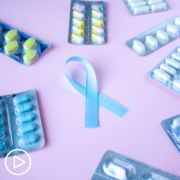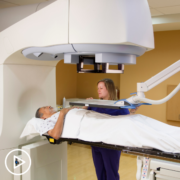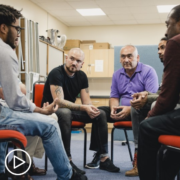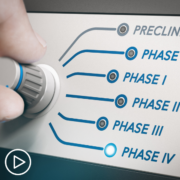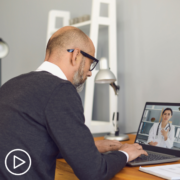Should Prostate Cancer Patients and Families Keep Using Telemedicine?
Should Prostate Cancer Patients and Families Keep Using Telemedicine? from Patient Empowerment Network on Vimeo.
Prostate cancer patients can still utilize telemedicine after COVID-19 restrictions have lessened. Dr. Heather Cheng from Seattle Cancer Care Alliance shares information about situations when telemedicine visits can be helpful for patients.
See More from Prostate Cancer TelemEDucation
Related Programs:

|

|

|
Transcript:
Sherea Cary:
Dr. Cheng, now that telemedicine has broader applications, should prostate cancer patients and families keep telemedicine in their toolbox post-COVID?
Dr. Heather Cheng:
Yes, I actually think it’s one of the…telemedicine, in general, is one of the silver linings of COVID, I think from a member of the medical community, we had to learn…actually, I was already doing some telemedicine, limited telemedicine before COVID hit. But I do think for patients who have access to an Internet or a smartphone and are able to do their visits, it is really decreasing the burden on them in terms of how much time they have to take off work to go to their medical appointments, I think there are times when patients still have to go into clinic, for example, to get treatment, but a lot of times, at least for prostate cancer patients, they can have their PSA that prostate-specific antigen blood test, checked in a lab close to their home, and then you know, at a time that’s convenient to them. And then I can do a telehealth with them later, so that they don’t have to take as much time off work. And so, I think in some cases it’s really, really made it easier for patients, although there are still times when we do need to see them in person, it’s just really nice to have that as an option.
So, I really do think that’s a really good thing, and I hope that the medical community and patients can continue to benefit from that. The other time when it’s helpful is for second opinions and consultation, so this is also really important for patients to know about it, is the first time they’re making a big decision about their treatment and they’re not 100 percent sure maybe they want to get us that an opinion, just to make sure that other doctors agree and that they get another chance to hear the treatment options explained in a different way. And I see a lot of patients for second opinions just to kind of get more confidence, maybe they’ll still decide to get treatment with their local oncologist, because it’s easier closer to home and less disruptive than to come to see us in Seattle. But it still gives them more confidence that they’re going down the right treatment path, so I think telemedicine also makes that a lot easier for patients as well.


